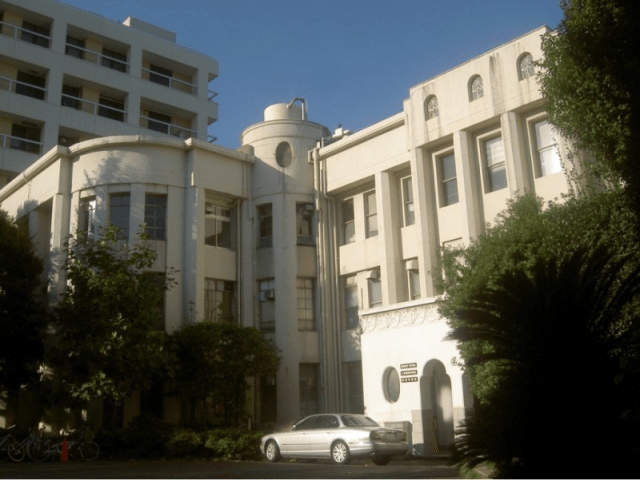
Source says score-rigging was born out of concern that many “female doctors quit their jobs after having children.”
Summer is traditionally a quiet time at most educational institutions, with the heat and mid-season break softly encouraging everyone to take things at a bit more leisurely pace. But this summer has been anything but tranquil at Tokyo Medical University, a private school located in the capital’s Shinjuku Ward.
Last month, the school’s president and the chairman of its board of regents stepped down as part of a scandal involving the school giving preferential admissions treatment to the son of a Ministry of Education, Culture, Sports, Science and Technology official in exchange for continued funding through a program in which the Japanese government provides financial support for select private universities. The ensuing investigation has resulted in further allegation of wrongdoing, this time related to the scoring of female examines in Tokyo Medical University’s entrance exam.
According to a source involved with the alleged score-tampering, since 2010 Tokyo Medical University has been lowering the scores of female applicants across the board for its entrance exam, which consists of math, science, and English questions. The exact reduction varied from year to year, with those making the changes running a computer simulation to see how far down women’s scores should be adjusted in order to keep the eventual percentage of accepted students who were women at 30 percent or lower. In most years, women’s scores on the exam were reduced between 10 and 20 percent (applicants with passing scores on the exam then submit an essay and undergo an interview, after which the final decision to admit them or not is made by the school).
▼ Tokyo Medical University
The score-tampering is said to have been carried out for applicants to Tokyo Medical University’s Department of Medicine, which was founded in 1916. No accusations have yet surfaced regarding the university’ School of Nursing, which is started in 2013.
As to why the university was purposely knocking down women’s test scores, the source said:
“There are many cases of female doctors quitting their jobs due to childbirth and other reasons, so we felt it would be a problem if more than 30 percent of the successful applicants were women.”
The source did not elaborate on whether the expressed concern over female doctors quitting their jobs grew out of a fear that too many successful female applicants would one day leave Japan without a sufficient number of doctors, or simply leave the school with fewer eventual veteran providers who would boost the reputation of their alma mater.
Prior to the spring start of the Japanese academic year, this February 1,596 men and 1,018 women took Tokyo Medical University’s School of Medicine entrance exam, with 18.9 percent of the male applicants receiving passing scores compared to 14.5 percent of the women. Out of the total pool of applicants, 8.8 percent of the men were eventually admitted to the school for the 2018 school year, with the ratio for women being a much lower 2.9 percent.
Tokyo Medical University has launched an internal investigation into the matter, and is promising a statement on its progress next week.
Sources: Livedoor News/Yomiuri Online via Jin, Livedoor News/Nitele News 24, Nihon Keizai Shimbun, The Japan Times
Top image: Pakutaso
Insert image: Wikipedia/Southerncity~commonswiki


 Most female doctors in poll can understand Tokyo medical school reducing female applicant scores
Most female doctors in poll can understand Tokyo medical school reducing female applicant scores Japanese high schools stop asking students to specify their gender on application forms
Japanese high schools stop asking students to specify their gender on application forms Work-in-progress Japanese AI program could probably get into 474 universities in the country
Work-in-progress Japanese AI program could probably get into 474 universities in the country Man kicked out of Japan’s national college entrance exam for improper mask-wearing technique
Man kicked out of Japan’s national college entrance exam for improper mask-wearing technique Japanese university globalizes with fall start date, governor wants English as official language
Japanese university globalizes with fall start date, governor wants English as official language Japan’s new difficult-to-drink-from beer glass protects your liver, but it’s a brutal experience
Japan’s new difficult-to-drink-from beer glass protects your liver, but it’s a brutal experience Demon Slayer: Kimetsu no Yaiba gets new roller coaster attractions and food at Universal Studios Japan
Demon Slayer: Kimetsu no Yaiba gets new roller coaster attractions and food at Universal Studios Japan How to order snacks on a Shinkansen bullet train in Japan
How to order snacks on a Shinkansen bullet train in Japan New samurai glasses are Japan’s latest weird must-have souvenir
New samurai glasses are Japan’s latest weird must-have souvenir Hello, cosmetics! Clinique teams up with Hello Kitty this summer for first-time collaboration
Hello, cosmetics! Clinique teams up with Hello Kitty this summer for first-time collaboration High-fashion Totoro cuddle purse is like an elegant stroll in the forest【Photos】
High-fashion Totoro cuddle purse is like an elegant stroll in the forest【Photos】 Burger King Japan suddenly adds Dr. Pepper and Dr. Pepper floats to its menu nationwide
Burger King Japan suddenly adds Dr. Pepper and Dr. Pepper floats to its menu nationwide New Nintendo Lego kit is a beautiful piece of moving pixel art of Mario and Yoshi【Photos】
New Nintendo Lego kit is a beautiful piece of moving pixel art of Mario and Yoshi【Photos】 Japan’s cooling body wipe sheets want to help you beat the heat, but which work and which don’t?
Japan’s cooling body wipe sheets want to help you beat the heat, but which work and which don’t? Nintendo history you can feel – Super NES, N64, and GameCube controllers become capsule toys
Nintendo history you can feel – Super NES, N64, and GameCube controllers become capsule toys “The most Delicious Cup Noodle in history” – Japan’s French Cup Noodle wins our heart【Taste test】
“The most Delicious Cup Noodle in history” – Japan’s French Cup Noodle wins our heart【Taste test】 Starbucks releases a cute Frappuccino and Unicorn Cake…but not in Japan
Starbucks releases a cute Frappuccino and Unicorn Cake…but not in Japan Kyoto Tower mascot termination reveals dark side behind cute Japanese characters
Kyoto Tower mascot termination reveals dark side behind cute Japanese characters McDonald’s Japan’s Soft Twist Tower: A phantom ice cream only sold at select branches
McDonald’s Japan’s Soft Twist Tower: A phantom ice cream only sold at select branches Yabai Ramen: What makes this Japanese ramen so dangerous?
Yabai Ramen: What makes this Japanese ramen so dangerous? Finally! Nintendo Japan expands Switch 8-bit controller sales to everybody, Online member or not
Finally! Nintendo Japan expands Switch 8-bit controller sales to everybody, Online member or not Japanese government wants to build luxury resorts in all national parks for foreign tourists
Japanese government wants to build luxury resorts in all national parks for foreign tourists To combat declining birth rate, Japan to begin offering “Breeding Visas” to foreigners
To combat declining birth rate, Japan to begin offering “Breeding Visas” to foreigners 10 things you should buy at 7-Eleven in Japan
10 things you should buy at 7-Eleven in Japan Studio Ghibli releases anime heroine cosplay dresses that are super comfy to wear
Studio Ghibli releases anime heroine cosplay dresses that are super comfy to wear Woman charged for driving suitcase without a license in Osaka
Woman charged for driving suitcase without a license in Osaka Studio Ghibli unveils My Neighbour Totoro miniature house model
Studio Ghibli unveils My Neighbour Totoro miniature house model Kyoto experiencing problems with foreign tourists not paying for bus fares, but not on purpose
Kyoto experiencing problems with foreign tourists not paying for bus fares, but not on purpose Fighting mild hunger with a Japanese soda that turns into jelly in the stomach【Taste test】
Fighting mild hunger with a Japanese soda that turns into jelly in the stomach【Taste test】 Studio Ghibli’s Howl’s Moving Castle tapestry unveiled in Japan for first time
Studio Ghibli’s Howl’s Moving Castle tapestry unveiled in Japan for first time McDonald’s new Happy Meals offer up cute and practical Sanrio lifestyle goods
McDonald’s new Happy Meals offer up cute and practical Sanrio lifestyle goods Sales of Japan’s most convenient train ticket/shopping payment cards suspended indefinitely
Sales of Japan’s most convenient train ticket/shopping payment cards suspended indefinitely Sold-out Studio Ghibli desktop humidifiers are back so Totoro can help you through the dry season
Sold-out Studio Ghibli desktop humidifiers are back so Totoro can help you through the dry season Japanese government to make first change to romanization spelling rules since the 1950s
Japanese government to make first change to romanization spelling rules since the 1950s Foreigner’s request for help in Tokyo makes us sad for the state of society
Foreigner’s request for help in Tokyo makes us sad for the state of society Ghibli founders Toshio Suzuki and Hayao Miyazaki contribute to Japanese whisky Totoro label design
Ghibli founders Toshio Suzuki and Hayao Miyazaki contribute to Japanese whisky Totoro label design Doraemon found buried at sea as scene from 1993 anime becomes real life【Photos】
Doraemon found buried at sea as scene from 1993 anime becomes real life【Photos】 Tokyo’s most famous Starbucks is closed
Tokyo’s most famous Starbucks is closed Princesses, fruits, and blacksmiths: Study reveals the 30 most unusual family names in Japan
Princesses, fruits, and blacksmiths: Study reveals the 30 most unusual family names in Japan No doctors or hairdressers! Survey asks Japanese women what professions they don’t want to date
No doctors or hairdressers! Survey asks Japanese women what professions they don’t want to date Public high school in Japan’s Gifu Prefecture will no longer take student absences into account for entrance applications
Public high school in Japan’s Gifu Prefecture will no longer take student absences into account for entrance applications Survey says more sixth graders in Japan aspire to work in medicine this year than last year
Survey says more sixth graders in Japan aspire to work in medicine this year than last year 16-year-old Japanese girls will no longer be allowed to marry, age of legal adulthood moves to 18
16-year-old Japanese girls will no longer be allowed to marry, age of legal adulthood moves to 18 6 surprising things about having a baby in Japan
6 surprising things about having a baby in Japan Japanese dating site’s picture of ideally attractive woman: young, no sleeves, college education
Japanese dating site’s picture of ideally attractive woman: young, no sleeves, college education The top 10 universities in Japan determined by 2021 World University Rankings
The top 10 universities in Japan determined by 2021 World University Rankings Tokyo University of the Arts to offer graduate program in video game design next year
Tokyo University of the Arts to offer graduate program in video game design next year If you want your kids to go to elite universities, give them Legos, Japanese study says
If you want your kids to go to elite universities, give them Legos, Japanese study says 5 powerful reasons to be a woman in Japan 【Women in Japan Series】
5 powerful reasons to be a woman in Japan 【Women in Japan Series】 Matcha improves sleep quality, social cognition, researchers say, and you don’t need to drink it
Matcha improves sleep quality, social cognition, researchers say, and you don’t need to drink it Another women’s university in Japan to accept transgender women, the first in Kyushu
Another women’s university in Japan to accept transgender women, the first in Kyushu Big win for tattoo artists: Japan’s Supreme Court rules medical licenses aren’t necessary
Big win for tattoo artists: Japan’s Supreme Court rules medical licenses aren’t necessary Osaka welfare clerk denies application, suggests woman seek work in the sex industry
Osaka welfare clerk denies application, suggests woman seek work in the sex industry
Leave a Reply